The mechanics of presidential inaugurations have changed considerably throughout American history; however, several traditions remain that are almost always honored every four years. These traditions include the incoming and outgoing presidents traveling together from the White House to the Capitol for the ceremony and the delivery of an inaugural address.
Another one of the longest standing traditions is the outgoing president attends the inauguration ceremony. There have been only four (living) presidents who broke this tradition in all of American history: John Adams, John Quincy Adams, Martin Van Buren, and Andrew Johnson. While Van Buren did not attend the inauguration of William Henry Harrison, his absence was not due to acrimony as the two men were friendly and even dined together days before the ceremony. But the political drama that led to the absence of the three other men offers a snapshot of the intense partisanship that has often accompanied American politics.
John Adams
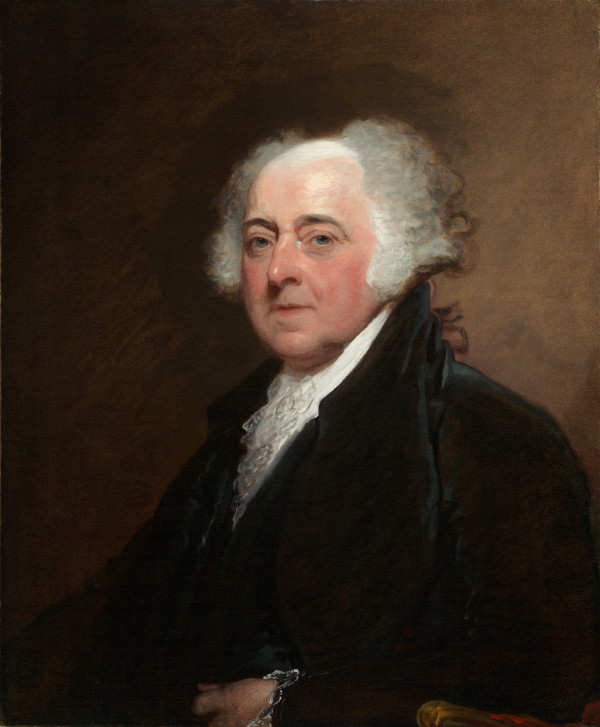
President Washington’s hopes for a partisan-free American political system were abruptly washed away when his successor, John Adams, refused to attend Thomas Jefferson’s inauguration. Adams served for only one term; his passage of the Alien and Sedition Acts of 1798 and other controversial decisions had made him unpopular.
Not only did Adams lose reelection, but he lost it to his great political rival, Thomas Jefferson. Adams, a staunch Federalist, found Jefferson’s Democratic-Republican values to be short-sighted and uncivilized. The pair’s political differences led to a contentious campaign, and as a result bad blood emerged between them. The animosity grew so great that Adams ultimately did not attend Jefferson’s March 1801 inauguration.
Before sunrise on inauguration day, Adams departed the unfinished White House inconspicuously and started his horse-drawn carriage journey to Baltimore. The final destination of his journey was Massachusetts to reunite with his wife Abigail and his family. Although it is unclear as whether or not Adams was formally invited to the ceremony, his absence was noticed by the press. The Massachusetts Spy reported that “Sensible, moderate men of both parties would have been pleased had he tarried until after the installation of his successor.”
Luckily, this tension between the Founding Fathers did not last long. In 1811, the two presidents began a friendly and intellectual correspondence that lasted until their death. The two men died minutes apart from each other on July 4, 1826.
The past political animus that persuaded Adams to stealthily exit the White House without attending the inauguration of Jefferson would not be equaled until his son, John Quincy Adams, took office.
John Quincy Adams
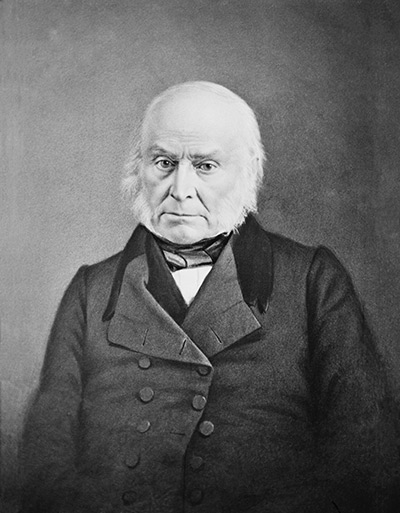
Unfortunately for John Quincy Adams, he followed in his father’s footsteps, becoming the second president to serve only one term in office. Unlike his father, Quincy Adams identified as a Democratic-Republican and then later as a National Republican and lost the presidency to a political newcomer from a brand-new political party: Andrew Jackson of the Democratic party.
The controversial election of 1828 is widely accepted by historians as both the beginning of the American two-party political system and the first modern political campaign. The Quincy Adams and Jackson campaigns traded vicious insults for months leading up to the election.
Campaign attacks became unprecedently personal during this election cycle. Jackson’s wife, Rachel, became a central target of smear campaigns, and Jackson’s mother was even referred to as a “common prostitute.” In return, Jackson’s camp branded Quincy Adams an “unscrupulous aristocrat” whose administration was filled with corruption.
The political mudslinging that occurred during the campaign was so extreme that Quincy Adams refused to attend Jackson’s inauguration and departed from Washington early, just as his father did 27 years before.
Andrew Johnson
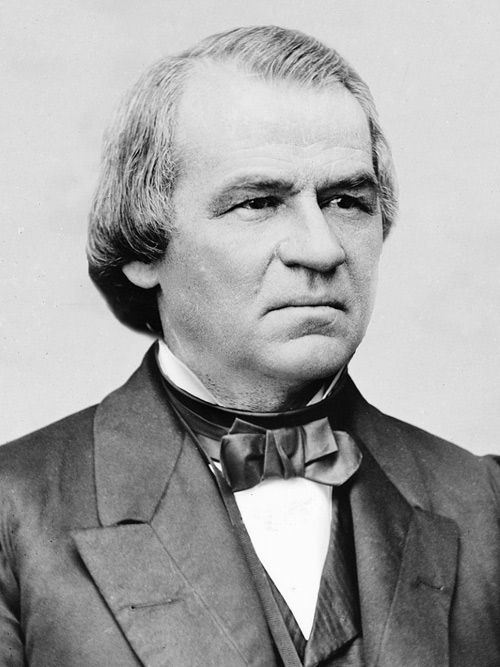
Andrew Johnson is the only one of the inauguration skippers who was never actually elected to the Oval Office — he assumed the position following the assassination of Abraham Lincoln in 1865.
Johnson’s presidency is widely regarded as a tumultuous one, as he suffered the country’s first ever impeachment and lost his bid to serve a second term. He was so universally unpopular that his own Democratic party did not award him their nomination for president in 1868. The immensely popular General Ulysses S. Grant, a political enemy of Johnson’s, eventually won the presidency.
Given that he did not receive his own party’s nomination, Johnson knew for longer than all other presidents that he would not be taking the Oath of Office come inauguration day and that he would be a mere audience member. Two months before the ceremony, Grant informed news outlets that he would refuse to ride in the same carriage as Johnson on the traditional trip from the White House to the Capitol. Apparently, Johnson did not respond or acknowledge Grant’s remarks and therefore it was unclear whether or not the scorned president would be in attendance.
According to the Washington Post, on March 4, 1869, Grant arrived at the White House. Soon after their arrival, the procession received word that Johnson would not be attending the ceremony. Instead, Johnson chose to remain at the White House and sign the last pieces of legislation waiting on his desk. The procession pulled away from Pennsylvania Avenue with one less president than expected.
Johnson’s truancy was certainly noticeable; however, his presence was not dearly missed by Grant or the media. The Saturday Evening Post covered the event in their March 13, 1869, issue, dispassionately stating that “Grant was duly inaugurated on the 4th” — making no mention of Johnson’s absence.
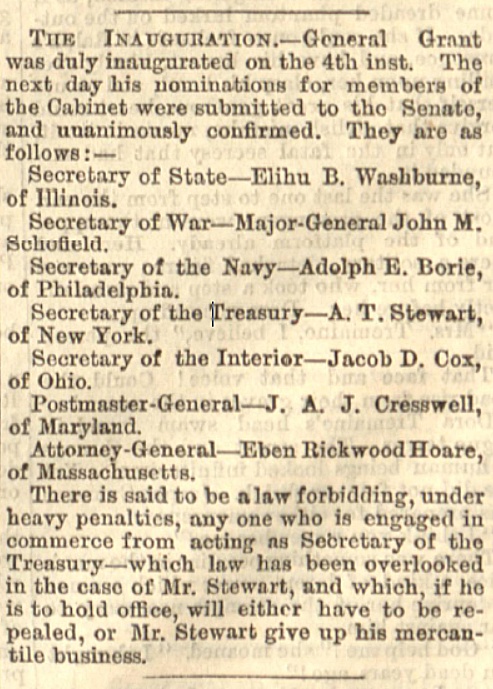
Even though these three instances certainly highlight the maleficent powers of partisanship, living outgoing presidents attended the inauguration of their successors on all other occasions. Inauguration days are ceremonious events filled with parades, balls, and high expectations for the incoming administration; however, these instances reveal how political drama can always unfold, no matter how little time is left in a sitting president’s term.
Featured image: President Ulysses S. Grant’s first inaugural address in 1869 (Library of Congress)
Become a Saturday Evening Post member and enjoy unlimited access. Subscribe now
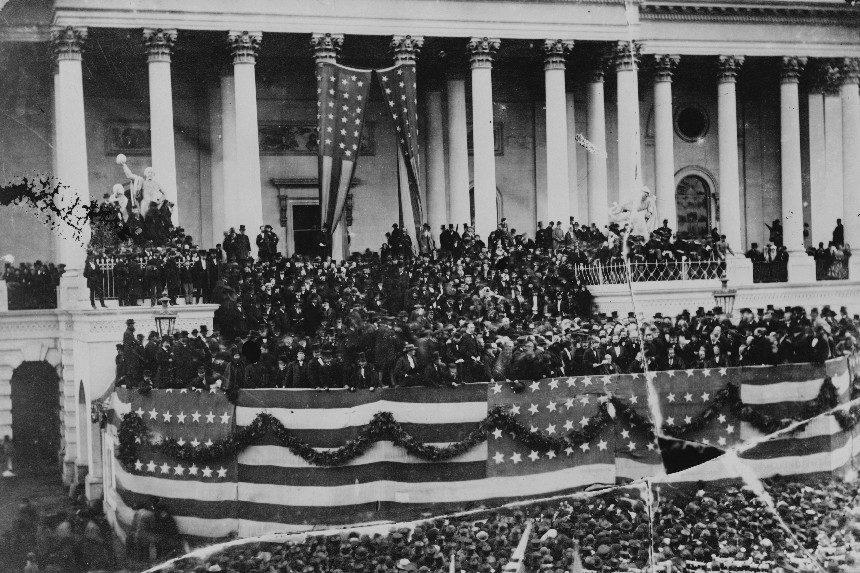


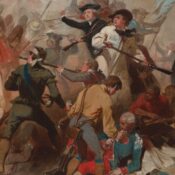
Comments
Now you have my curiosity up; what happened with Van Buren?
I want to renew the gift subscription for Bubby Dahl for the rate of $28 for 2 years. We enjoy your magazine immensely. I called the 800 number but you are closed. I don’t see a button the web page to allow me to renew at this rate. Pls contact me. Thank you
Well, it’s very understandable from this article why these former Presidents (and residents) of 1600 Pennsylvania Avenue chose not to attend the Inaugurations of their successors. I’d have to say making themselves scarce was likely for the best. With the outgoing President in 2021, there’s no doubt whatsoever about it.
It’s quite interesting how many things/events from the 19th century that skipped the 20th, are reappearing in the 21st. Of course there are many other things from back then that were never properly resolved, still aren’t, and have haunted this country ever since.